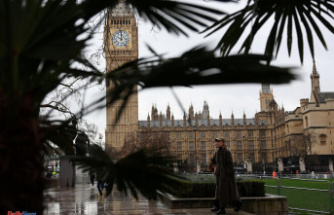Düsseldorf (dpa / lnw) - After the decision to phase out coal in the Rhenish area by 2030, the SPD is calling for structural change there to be pushed twice as fast. Jobs are now being lost there much sooner than originally thought, Lena Teschlade, the SPD parliamentary group's structural change officer, warned. The state government must now give the around 14,000 coal workers in the Rhenish mining area specific answers, said the Cologne state parliamentarian on Thursday in Düsseldorf.
At the beginning of last year, the then CDU-led state government promised to create more than 6,000 new jobs "in future-oriented industries" by the end of the decade, Teschlade noted. So far, however, little has been seen of this. In a parliamentary question to the state government, she is now asking for information on how many new jobs have actually been created since then. Above all, the region needs safe, well-paid industrial jobs again, not just service jobs, she emphasized.
Last week, the federal and state economics ministers, Robert Habeck and Mona Neubaur (both Greens), presented an agreement with the energy company RWE. According to this, the phase-out of coal in the Rhenish mining area is to be brought forward by eight years, but the Lützerath settlement - a symbol of the climate protection movement - is to be demolished in order to mine coal there.
Teschlade criticized that the black-green state government made this important decision to phase out coal early without involving the state parliament, local municipalities or the unions. She called for "a new district contract" in which all actors jointly determined how things should go on. The funds from the Structural Strengthening Act, which provides up to 40 billion euros for the German brown coal regions by 2038 - including 37 percent for the Rhenish mining area alone - should "flow twice as fast now".
In a request to the state government, the FDP opposition also demands clarification as to why the early phase-out of coal was "planned past Parliament".












